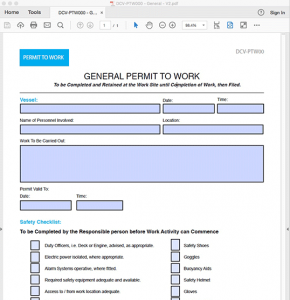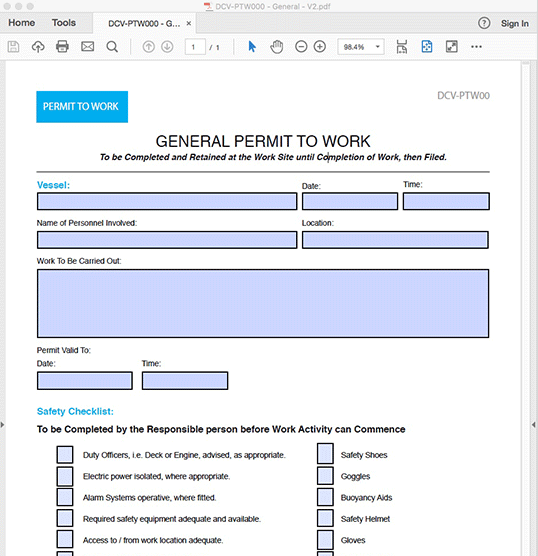A Permit to Work (PTW) under ship Safety Management Systems (SMS) is a formal document used to control certain types of work which are potentially hazardous. It sets out the precautions required to complete the work safely, based on a prior risk assessment.
PTW systems are a key aspect of the SMS on board a ship, which is mandated by the International Safety Management (ISM) Code. The ISM Code requires shipping companies to establish a safety management system to ensure safety at sea, prevent human injury or loss of life, and avoid damage to the environment and the ship.
The Permit to Work might be required for various high-risk activities, such as hot work (any work involving burning, welding, or the use of fire or spark-producing tools), work in confined spaces, work at height, and electrical work. The PTW ensures that such work is carried out only after appropriate safety measures have been taken.
The PTW usually includes the following information:
- Description of the work to be done
- Location of the work
- Date and time when the work will be carried out
- Hazards associated with the work
- Control measures to be implemented to reduce risks
- Personal protective equipment to be used
- Required qualifications or training for the personnel carrying out the work
- Emergency procedures
The PTW must be authorized by a competent person before the work can commence. The personnel involved in the work should understand the contents of the PTW and comply with its requirements. After the work is completed, the PTW should be returned to the issuer for closure.
Implementing a Permit to Work system helps to ensure that potential risks are properly managed, thus contributing to the overall safety and effectiveness of operations on a ship.
Here is just an example:



One thought on “Permit to Work under ship safety management systems(SMS) On Ships”